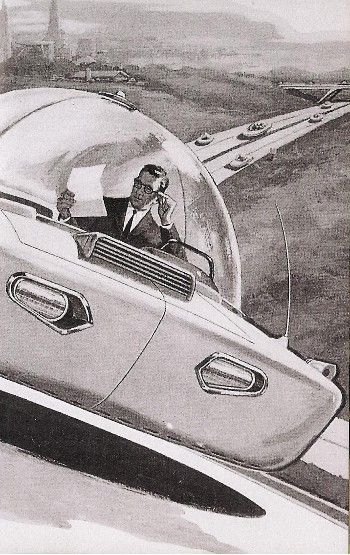Always enjoy reading Adrienne Lafrance in the Atlantic. Her latest article explores the competition to create the first truly driverless car, with the entrants including contemporary tech powerhouses (Google, Tesla, Uber, Apple) and Big Auto stalwarts. Google, having entered the race early and conducted ample road-testing, is commonly believed to have the advantage, but that may not be so. Certainly there were plenty of “champions” crowned early in the original automobile race of the late 1800s and early 1900s, before the game played out.
My guess is that as in that competition, there’ll be quite a few winners in the sector and many more losers. Should 3D printers become ubiquitous after driverless is perfected, the field will shift again, with smaller players no longer barred from entry. One important question is whether the implementation of the technology should be gradual or if the machine should be “born whole.” Such a decision is considered crucial because, as Lafrance writes, “the amount of money at stake is potentially unprecedented.”
An excerpt:
Self-driving cars promise to create a new kind of leisure, offering passengers additional time for reading books, writing email, knitting, practicing an instrument, cracking open a beer, taking a catnap, and any number of other diversions. Peope who are unable to drive themselves could experience a new kind of independence. And self-driving cars could re-contextualize land-use on massive scales. In this imagined mobility utopia, drone trucks would haul packages across the country and no human would have to circle a city block in search of a parking spot.
If self-driving vehicles deliver on their promises, they will save millions of lives over the course of a few decades, destroy and create entire industries, and fundamentally change the human relationship with space and time. All of which is why some of the planet’s most valuable companies are pouring billions of dollars into the effort to build driverless cars.
“This is an arms race,” said Larry Burns, a professor of engineering at the University of Michigan and a former GM executive who also serves as an advisor to Google. “You’re going to see a new age for the automobile.”
* * *
Many people have declared Google the frontrunner in the race for self-driving cars. The company has the road experience, mapping databases, artificial intelligence know-how, and, presumably, a significant head start. As of October, its fleet of vehicles had logged 1.3 million miles of test-driving in fully-autonomous mode since 2012—the distance-equivalent of 90 years of human driving, the company said. But that doesn’t mean Google will ultimately win. The major players each bring unique and formidable advantages.•
Tags: Adrienne LaFrance, Larry Burns

